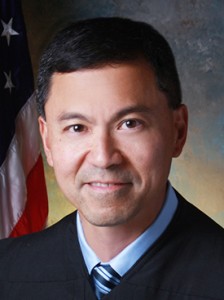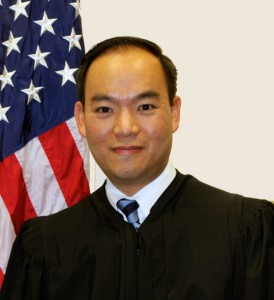 On March 15, 2017, two federal judges ordered the executive branch of our government to not enforce an order issued by President Trump. The orders by these judges were without legal basis, and these theoretical guardians of the law acted with utter disregard for the law.
On March 15, 2017, two federal judges ordered the executive branch of our government to not enforce an order issued by President Trump. The orders by these judges were without legal basis, and these theoretical guardians of the law acted with utter disregard for the law.
The Background
One week after taking office, on January 27, 2017, President Trump issued Executive Order No. 13,769 entitled, “Protecting the Nation from Foreign Terrorist Entry into the United States.” A federal district judge in the United States District Court for the Western District of Washington entered a nationwide preliminary injunction on February 3, 2017 stopping enforcement of the order. A panel of the Ninth Circuit Court of Appeals upheld that injunction on February 9, 2017.
The President, in the interests of protecting the nation, rather than continue to challenge the Washington District Court’s injunction, issued Executive Order No. 13,780 to be effective March 16, 2017. The new order rescinded No. 13,769.
The essence of these two executive orders was to ban travel into the United States by certain nationals, ultimately from six countries: Iran, Libya, Somalia, Sudan, Syria, and Yemen for a period of 90 days and indefinitely ban refugees from Syria. All of these countries had been identified by Congress and President Obama as either being state sponsors of terrorism or unable to control and identify terrorists inside their countries.
The judges in Hawaii and Maryland have ruled that President Trump’s order would somehow involve the federal government in the establishment of a religion in violation of the First Amendment to the Constitution and stopped enforcement of the president’s order.
The President’s Authority to Issue These Executive Orders
The formulation of immigration policies is entrusted exclusively to Congress. Galvan v. Press (1954). In the Immigration and Nationality Act of 1952, Congress delegated some of its power to the President:
Whenever the President finds that the entry of any aliens or of any class of aliens into the United States would be detrimental to the interests of the United States, he may by proclamation, and for such period as he shall deem necessary, suspend the entry of all aliens or any class of aliens as immigrants or nonimmigrants, or impose on the entry of aliens any restrictions he may deem to be appropriate. 8 U.S.C. 1182(f). (emphasis added)
Some laws are complex, but this one is not. The president has complete authority, delegated by Congress to suspend the entry of all aliens for any reason. There is no requirement legally that he provide a reason. Due to the immigration policy, many people are facing various problems such as jail and deportation thus to help them out lawyers from specialized law firms have taken it upon themselves to help get them justice. You can contact Immigration lawyers Perth if you want to know more about the immigration law and how you fight against it and claim your right.
The Test for Legality of a Presidential Order
The standard for judging the legality of a presidential order was defined by Justice Robert Jackson in a case that arose when President Harry Truman tried to take over the country’s steel mills. Justice Jackson gave a straightforward description of when a presidential order is clearly legal:
“When the President acts pursuant to an express or implied authorization of Congress, his authority is at its maximum. A presidential order authorized by Congress will be constitutional, unless Congress itself had acted unconstitutionally.”
Congress Has Authority over Immigration, It Delegated Specific Elements to the President
Quick summary: Congress has authority over immigration. The Congress has delegated specific authority to the president: “suspend the entry of all aliens or any class of aliens… he may deem to be appropriate”. The president’s authority is greatest when he acts pursuant to an express authorization of Congress.
President Trump, in both executive orders, acted with the express authority of Congress. For the courts in Washington, Hawaii, and Maryland, that should have ended the inquiry, without interference with the president’s order. Instead, it was the courts that lawlessly went beyond their constitutional authority and determined they were better suited to determine immigration policy for the nation.
 The Judges Ignore the Supreme Court and the Congress
The Judges Ignore the Supreme Court and the Congress
In a curious coincidence, Judge Derrick Watson in Hawaii and Judge Theodore Chuang in Maryland both issued opinions that took 43 pages to explain why they were unlawfully interfering with a clearly lawful presidential order. In those 86 pages, neither Watson nor Chuang acknowledge the leading case on defining the constitutional use of presidential power: Youngstown Sheet & Tube Company v. Sawyer. This is the President Truman case in which Supreme Court Justice Robert Jackson defined the constitutional use of presidential power. Both judges simply ignored the Supreme Court.
Watson acknowledges that 8 USC 1182(f) exists and then proceeds to ignore it. Chuang seems more troubled by the fact that Congress has given this authority to the president and he spends seven pages arguing why the president does not have the authority that Congress expressly delegated to him. Chuang decides through some very tortured analysis that “any class of aliens” cannot be defined by nationality. Watson blatantly ignores Congress and Chuang ultimately determines that Congress did not know what it was doing.
 The Judges Wrap Themselves in Freedom of Religion to Set National Immigration Policy
The Judges Wrap Themselves in Freedom of Religion to Set National Immigration Policy
Both Watson and Chuang ultimately determine that President Trump’s order violates the First Amendment command: “Congress shall make no …law respecting an establishment of religion”. The Supreme Court has defined a test for the constitutionality of a government action in relation to the Establishment Cause. The action must:
- have a secular purpose
- have a principal or primary effect that neither advances nor inhibits religion
- not “foster’ an excessive government entanglement with religion Lemon v. Kurtzman,
Both judges ruled that President Trump’s order fails this test and violates the First Amendment’s Establishment Clause. Both based this decision principally on statements made by candidate Trump during the campaign and by Rudy Giuliani and Kellyanne Conway during press interviews. During the campaign there were references to a Muslim ban that apparently disturbed both judges enough to believe that:
- Securing our borders against potential terrorists is not a secular purpose.
- That banning all persons from six Muslim majority countries with demonstrated ties to terrorism in some way either advances or inhibits Islam, though the ban does not apply to over 90% of the world’s Muslims.
- The order in some way fosters an excessive entanglement with religion.
Lawless Political Decisions
Judges Watson and Chuang clearly made lawless political decisions. President Trump has criticized these decisions in public rallies. Trump has been scolded in the media for promoting disrespect for the judiciary. The reality is that these judges, in ignoring the Congress and the Supreme Court these two judges have brought about the disrespect themselves.






[…] The phrase “abuse of discretion” basically tells a lower court, that is has failed to exercise sound, reasonable, and legal decision-making skills. In layman’s terms, the lower court did not follow the law, and made a lawless decision. […]